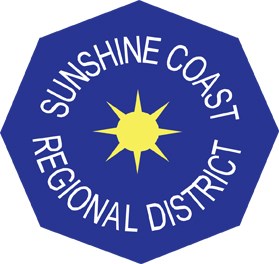Environmental and local economic sustainability considerations could soon be factored into the Sunshine Coast Regional District’s (SCRD) purchasing decisions.
SCRD directors voted to move ahead with a revised procurement policy at a July 25 corporate and administrative services committee meeting.
“These larger trade agreements, they can be really harmful to local economics, especially in small rural areas, because it is so restrictive on local governments … so the best way to contravene that is social procurement,” said chair and Halfmoon Bay director Lori Pratt before the unanimous vote.
The revised policy “allows for the SCRD to add sustainable social considerations to tenders by adding value weighting criteria and to evaluate bids based on these criteria,” according to the staff report introducing the policy.
Contained in a new “sustainable social procurement” section of the policy are commitments to “identify procurement opportunities that support the development of a sustainable local economy,” and to use an evaluation model that would incorporate the “total cost of ownership of products and services including the environmental benefits which may include sourcing with minimal packaging, sustainable products and services with low environmental impact.”
Under federal trade rules, local government policies that give preference to local vendors are prohibited, but according to the policy, “by practicality, any small value and low dollar purchases would normally be made in the local area.”
Additionally, while explaining the new guidelines, purchasing and risk management manager Valerie Cropp said that while “you cannot legally put in your policies that local preferences will be given,” the SCRD could define “local knowledge” as a value for consideration. “Although we cannot say ‘buy local,’ we can add it to our parameters that we’re looking for local expertise.”
Another addition to the policy intended to support local economic sustainability is for the SCRD to include, where applicable, the requirement that employees be paid a living wage “when performing tendered services.”
Directors also voted to pay about $3,000 for a Coastal Communities Social Procurement Initiative (CCSPI) membership.
The CCSPI was created by the Association of Vancouver Island and Coastal Communities (AVICC) to standardize social procurement polices and support local governments in creating them. Victoria-based company Scale Collaborative was contracted by the organization to manage the project.
The fee is calculated based on the population of the Sunshine Coast, but Cropp told directors when asked whether that would mean the Town of Gibsons and District of Sechelt would be included as members that each local government would have to create its own membership.
“They’re double dipping, they’re getting paid twice,” said Elphinstone director Donna McMahon.
The board is expected to vote on the revised policy in September. If adopted, it will be sent to the District of Sechelt and the Town of Gibsons as they look at similar policies.
The Village of Cumberland was the first community in AVICC to implement a social procurement policy, with other Vancouver Island municipalities following suit. Victoria and Vancouver also have their own versions.



